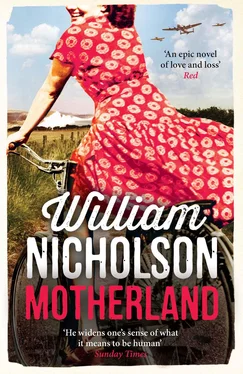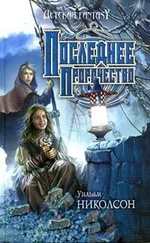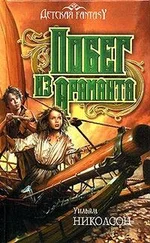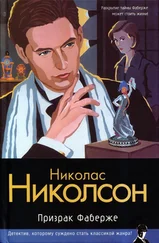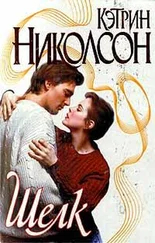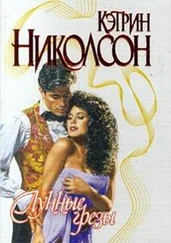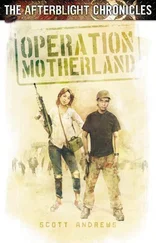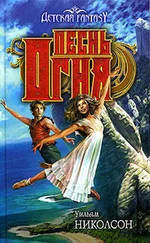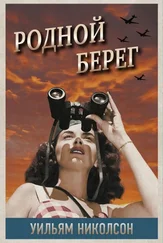There was a time when Kitty found the attentions of men oppressive, with their furtive looks, their veiled suggestions, their endless importunities. But since marriage and motherhood it has all ceased, and she finds to her surprise that she sometimes misses it. So Hugo and his absurd puppy-love is not as unwelcome as she pretends.
The three of them climb the steep flight of concrete steps up the cliff. She holds Pamela’s hand tight all the way, even though Pamela pulls crossly to be released. At the top of the steps a wide grass avenue, grazed close by rabbits, runs between banks of gorse over the brow of the hill. This is Hope Gap, a notch in the great chalk cliffs that lies between Seaford Head and the Cuckmere valley.
Pamela, let go at last, runs on ahead. Hugo carries the basket that contains the thermos flask and what’s left of their cheese and apple sandwiches.
‘She’s going to be a heartbreaker, that one,’ he says. ‘Like her mother.’
‘What does that mean, heartbreak?’ says Kitty. ‘I’ve never understood that. I don’t see how anyone can be properly in love with someone unless they know they’re loved back. And if they’re loved back, nothing’s broken.’
‘You don’t think it’s possible to love all on your own?’
‘I suppose in the very beginning. You can get excited, and build up your hopes, and so on. But if it all goes nowhere, then what’s the point? You’re just wasting your time.’
‘You may not be able to help it,’ says Hugo.
‘Rubbish,’ says Kitty firmly. Then seeing Pamela disappear out of sight, ‘Don’t go too far, Pammy!’
They reach the brow of the hill. From here they can see the coastline curving away for miles. Kitty looks as she always does for the long pier reaching out from Newhaven harbour. She remembers how she waited on the quayside for Ed to return, and how the first time he came back, and the second time he didn’t.
When they reach the sheep barn by the road, Pamela has already climbed into the back of Kitty’s ten-year-old Austin. She has the shiny pebbles in her open hands and is studying them intently.
‘Put on a jersey, darling,’ says Kitty. ‘It’ll be blowy driving home.’
Pamela shakes her head. Kitty gets into the driver’s seat, with Hugo beside her.
‘Feels strange being driven by a girl,’ he says.
‘I’m a trained driver,’ says Kitty. ‘And I’m not a girl any more.’
The shiny black open-topped Bantam is her car, and she maintains it in perfect condition. Now that Pamela is getting bigger Kitty is rediscovering the self that existed before motherhood. She recalls her days as an army driver wistfully, almost envying her past. Of course she’s a wife as well as a mother, but Ed is away so much. The business is proving very slow to get up on its feet. The top end of the market is dominated by the old-established firms, and the bottom end, where Caulder & Avenell aim to carve their niche, is virtually non-existent. They are having to create the demand that they hope to serve.
So Ed works hard, seeking out bargain wines from remote vineyards, building up a stock of such value for money that even the wine-averse English might be tempted to try a bottle.
‘Reliable quality plus a visible name,’ Larry tells him, offering his knowledge of the banana business. ‘What you need is little blue labels.’
‘I’m not sticking little blue labels on our bottles,’ says Ed. ‘You don’t stick little blue labels on your pictures.’
‘I expect I should,’ says Larry. ‘Then maybe I’d sell more.’
Kitty finds Ed’s trips abroad hard. When he’s home, when he’s in her bed, in her arms, her life makes sense to her. But then he goes away again, and the bed is empty once more.
‘You don’t have to go so soon, do you, darling?’
‘It’ll only be like this for a year or so,’ he says. ‘Once we’re properly up and running, I’ll be able to be a gentleman of leisure.’
‘I just miss you so,’ she says.
‘And I miss you, darling. But I’m doing it for you. And for Pammy. You know that.’
Pamela doesn’t know it.
‘Don’t go, Daddy,’ she says, clinging to him.
But he goes.
* * *
At the end of August Larry Cornford takes a train to Lewes and from there walks down the long and winding road to Edenfield. He carries a change of clothes and his paints and brushes in an old army kitbag. He keeps to the high grass verge, clear of the lorries rumbling to Newhaven. Once round the flank of the Downs he can see the village in the river valley below, and the church with its square tower, and the red roofs of the farmhouse behind it. He has not announced his coming and is not expected, but he has the sensation that the valley welcomes him back.
The farmyard looks much the same as when he was billeted here, except that the barn doors are open, and within he can make out stacks of wooden crates. A young man appears, carrying a crate out to the open back of a big van. Seeing Larry he gives a friendly nod and loads the crate into the van.
‘Hello,’ he says. ‘Can I help?’
‘I’m a friend of Ed’s,’ says Larry.
‘Ed’s away,’ says the young man. ‘Kitty’s here.’
Larry turns to the house, and there in the doorway stands Kitty, looking towards him. For a moment as their eyes meet neither speaks. Then Pamela appears, pushing past her mother, and stares at Larry.
‘Who’s that?’ she says.
‘That’s Larry,’ says Kitty. ‘He’s Daddy’s best friend. He came to see us when we lived in the big house. You said he was nice.’
‘I don’t remember,’ says the little girl.
‘He is nice,’ says Kitty.
All this time her eyes hold Larry’s, telling him how deeply quietly pleased she is to see him.
‘Hello, Pamela,’ says Larry.
‘Hello,’ says the little girl, looking from him to her mother and back.
‘Did you walk from Lewes?’ says Kitty.
‘Yes,’ says Larry. ‘It’s only an hour or so.’
‘Come on in.’
She looks the same and different. A little older, a little wearier. She’s wearing a cotton summer frock that makes her slight figure seem vulnerable. Her wide mouth unsmiling, her deep brown eyes steady beneath those strongly-defined eyebrows. A pale face framed in dark waves of hair. What is it that makes one face so much more beautiful than all others? Seeing her standing there in the farmhouse kitchen doorway, her little girl tugging at her skirt, Larry abandons what remains of his defences. He knows he will never love anyone as he loves her.
Hugo Caulder joins them over a pot of tea in the kitchen. He talks about the wine trade, and remote French vineyards still recovering from the war years where extraordinary deals are to be done, and his dream of having his own premises in London.
‘In Bury Street, or maybe even in St James’s Street. Then we’d start selling the fine wines as well.’
‘When does Ed get back?’ Larry asks.
‘He’ll be away at least another two weeks,’ Kitty says.
Hugo returns to loading his van.
‘So will you stay?’ says Kitty.
‘If I may,’ says Larry. ‘This is no weather for stewing in town.’
Hugo drives away in his loaded van. Kitty makes a potato omelette for their supper, and gives Larry a bottle of Vin de Pays d’Oc to open.
‘Ed’s best,’ she says. ‘To celebrate your visit.’
She waits until Pamela is asleep to ask the waiting questions.
‘So how’s Nell?’
‘Nell’s thriving. She’s away right now. A buying trip, with her boss.’
‘You can bring her down here any time, you know. She’d be very welcome.’
‘Yes, of course. Thank you.’
He lets a silence fall between them. As always, these silences act as gear changes, moments in neutral before the shift to a slower speed.
Читать дальше
